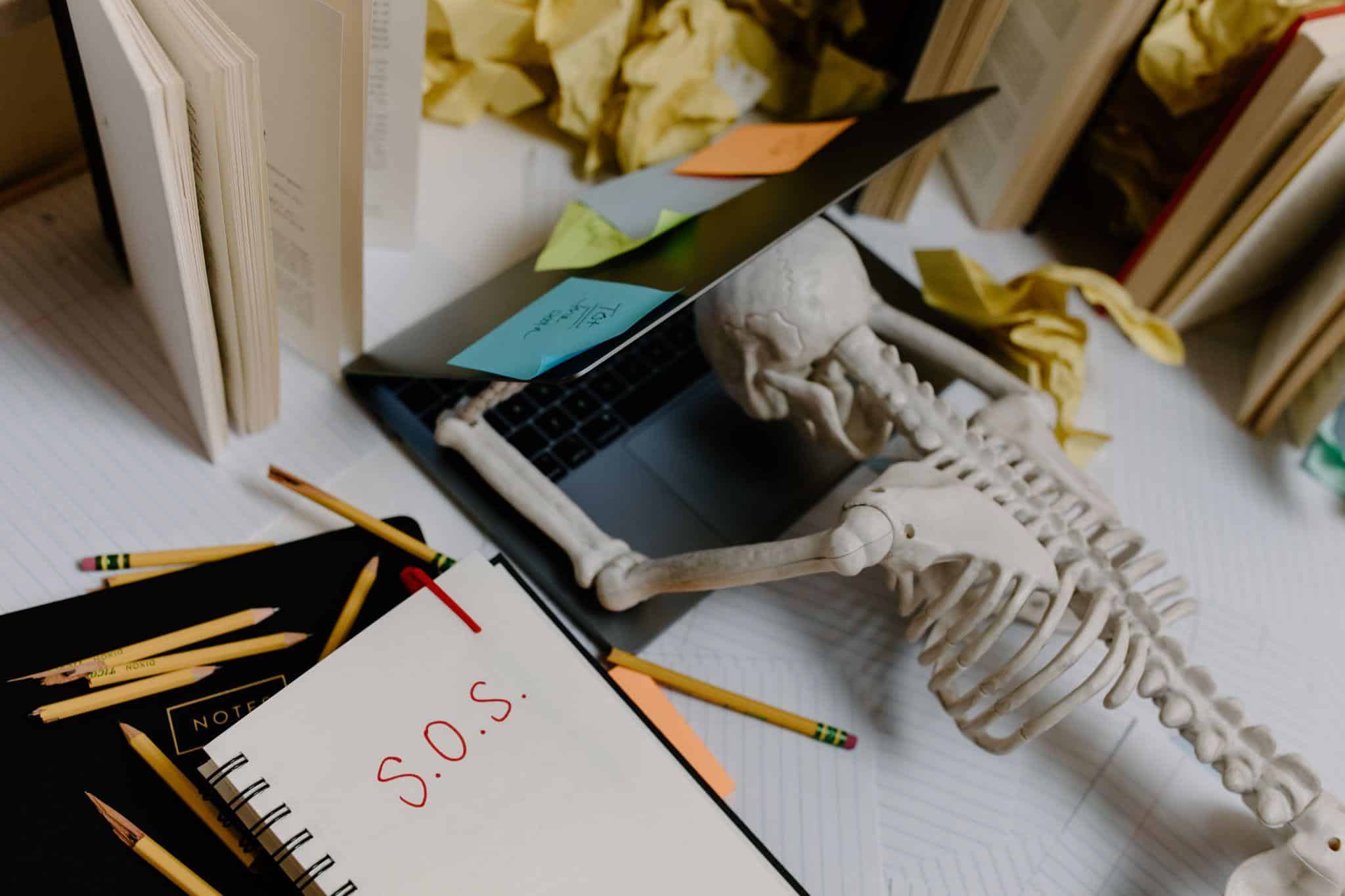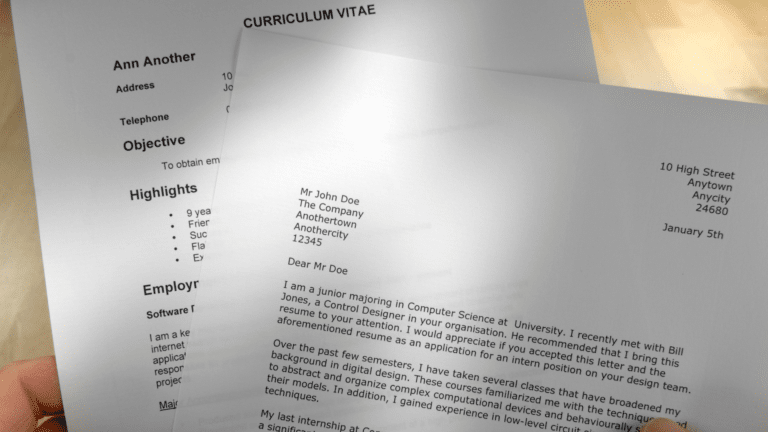Whether you just started a new job or have been working in the industry for a while, you’re definitely no stranger to workplace burnout.
Workplace burnout is not a new concept, but it has gotten this name somewhat recently. It’s a problem that takes feeling stressed out to a new level, as it can have a serious negative impact on both your mental and physical well-being.
Since prevention is always better than cure, it’s important to learn to recognize the warning signs of burnout before it blows up in your face.
To help you do just that, we’ve created this beginner-friendly guide on how you can prevent burnout in your workplace before it starts chipping away at your health.
Key Takeaways
- A workplace burnout is the feeling of being exhausted and unmotivated due to constantly excessive workload or neglect.
- The three main types of burnout include: overloaded, underchallenged and neglected. Each of them are characterized by a specific type of situation that can lead to a burnout.
- A burnout can lead to both physical and mental issues in the long run, which is why it’s important to always put one’s well-being first.
- If you’re feeling burned out, it’s best to ask for help and avoid bringing your work issues home.
What is Workplace Burnout? 
With the rise of workaholic influencers, people have started to believe that working hard and spending all of your day at work is the new norm. However, this hustle culture has done nothing but romanticize being overworked, and at some point, you’ll definitely notice the effect this is having on you.
All of this basically leads to workplace burnout, a phenomenon that has been widely used in recent years and that describes the feeling of being overworked and unmotivated. According to this employee burnout report, more than 50% of people said that they do in fact feel burned out at work.
When it comes to occupations, nurses are most likely to feel burned out at work, according to some recent data. That is mostly due to the low salary, intense hours, and hectic work environment.
Types of Burnout in The Workplace
There are three types of burnout that you can experience in the workplace, such as:
- Burnout due to neglect. This type of burnout occurs when you feel helpless or aimless with no guidance. The neglect burnout is classified as the inability to meet expectations and feeling incompetent, frustrated and purposeless in the long run.
- Overload burnout. This is the most commonly known type of burnout and it occurs when you consistently work much harder than you should. This means working extra hours and extra workloads to the point your mental and physical health start to give in.
- Under-challenged burnout. This type of burnout occurs when you’re unstimulated and unmotivated in your job due to no learning or career growth opportunities.
Causes of Burnout in the Workplace
Let’s have a look at some of the most common causes of burnout in the workplace:
- Poor work-life balance. If you overwork yourself and it leads to not having enough free time to spend with your family and friends, you’ll start to feel the burnout. This mainly happens because you spend all of your energy working and you don’t have any left for your free time.
- Unfair treatment. This type of treatment can include anything from favoritism, bias against you and even mistreatment. Because people will feel like they’re not being treated the same way as other colleagues, they will end up feeling burned out.
- Confusion around job expectations. If you’re unsure about expectations regarding your job and superiors, you’re likely to feel uncomfortable at work, which can in turn lead to burnout.
- Heavy workload. Working more than what you initially expected can lead to many mental problems and physical issues. It can lead to weight loss, body aches, less hours of sleep and exhaustion. This has the potential to distract you from important things in your life and you’ll end up feeling burned out.
- Work relationships. The number one thing that keeps people going is having the feeling they truly belong. That’s why it’s important to have healthy relationships with coworkers and colleagues since motivating each other may prevent feeling burned out.
- No recognition. Some people feel their hard work gets no recognition. Denying someone the sense of accomplishment is a sure fire way to feel burned out.
- Differences in values. If the company’s values and mission are not aligned with your own, then you’re more likely to feel unhappy at work, which can make you unproductive and eventually lead to burnout. The best way to avoid this is to do research on the company prior to your hiring process.
Symptoms of Burnout in the Workplace 
A workplace burnout will usually have a toll both on your mental and physical well-being. If you’re having trouble identifying it, here’s how it can show up:
Mental Signs of a Burnout
Some of the most common signs of mental burnout are:
- Lack of motivation
- Self-doubt
- Feelings of failure
- Loneliness
- Dissatisfaction
- No passions
Besides these, there are three major signs to look out for when faced with mental burnout.
Those are:
- Depersonalization: A mental state in which a person loses their individuality and any sign of characteristics. In psychiatry, depersonalization refers to the state in which a person doesn’t feel like themselves and loses their identity.
- Mental exhaustion: Referred to as the feeling of consistent tiredness which then leads to feeling no empathy, as well as intense level of irritability. It usually occurs when you are under an extreme amount of stress and have no interest in previous activities anymore.
- No sense of personal accomplishment: Once you reach the overworking stage, you’ll have no room for any personal accomplishments. That is mainly because you’ll have no time to think about yourself and your only accomplishments are linked to work.
Physical Signs of a Burnout
On the other hand, some physical signs of burnout include:
- Appetite change
- Constantly feeling tired
- Consistent headaches
- Difficulty sleeping
- Muscle aches
Stages of Burnout in the Workplace 
Here are the five stages of burnout in the workplace and how they can develop over time:
#1. Honeymoon Phase
Just like in a marriage, the work-related honeymoon phase is considered the most energetic and optimistic of all. This includes finding a new job or starting a new role or task, in which one might feel motivated enough to be productive and do a great job.
#2. Initial Stress
After some time, the honeymoon phase starts to drift away, and the workload will start getting to you. You’ll also start to notice that some parts of your day become a bit more stressful.
Once this stage begins, it’s important to be mindful of it and keep track of any mental or physical changes. The first mental sign of burnout is losing focus more easily. Then, you’ll begin to feel more fatigued and might have trouble sleeping, which is the first physical sign of burnout.
#3. Constant Stress
The next one is when you start noticing that the work stress is not going away. This is known as the “constant stress” stage. This type of stress will start to affect the quality of your work as well as your ability to meet deadlines.
This is also the stage where you might start feeling irritated. This could lead you to start being mean to coworkers or even to your family after a stressful day. You might also have trouble keeping up a conversation that is not related to work.
#4. Burnout
The next stage is the moment your stress level reaches a limit and you are unable to function properly. This is the actual burnout stage, when you start obsessing over work-related problems and neglecting every other aspect of your life.
This stage can be followed by headaches, stomach problems, and some destructive behaviors.
#5. Constant Burnout
If you fail to realize that you are burned out and you don’t seek help, burnout will become the way of your life. You will feel anxious and depressed constantly, which can lead to deteriorating family relationships and constant fatigue.
As previously mentioned, if left unaddressed, burnout will affect the quality and quantity of your work output, which can lead to you losing your job.
Consequences of Burnout in the Workplace
If we fail to prevent or address burnout, the most common consequences are the following:
Depression
It is quite common to hear that burnout can lead to depression. People suffering from burnout can feel the same symptoms as someone who is depressed, such as:
- No motivation
- No interest in doing previously enjoyed activities
- Inability to take pleasure in anything
- Exhaustion
- Detachment
These types of symptoms will make a person believe that they are incapable of doing a good job, making them very self-conscious. It can also be presumed that a burnout could be the very cause of someone becoming depressed.
Insomnia
Burnout is closely linked to sleep issues because the stress that burnout can cause has a great impact on the ability to relax as well as fall and stay asleep.
A person who feels burned out will have more trouble with:
- Insomnia
- Sleep fragmentation
- Higher anxiety and stress levels that make it harder to fall asleep
- Non-restorative sleep patterns
Failure to get enough sleep will result in feeling exhausted during the day, leading to more trouble finishing work, which can make a person feel unaccomplished.
Illnesses
Burnout increases the risk of developing many illnesses, such as:
- Chronic diseases
- Cardiovascular disease
- Cancer
- Blood clotting
- Diabetes
- Metabolic issues
- Sleep disturbances
- Strokes
- Musculoskeletal disease
Substance Abuse
Burnout can also lead to substance abuse and similar destructive behaviors. That is because it can make you feel overwhelmed, and you will want to figure out a way out of it.
Substance abuse mainly happens because people believe it helps relieve stress and anxiety.
When you’re experiencing burnout, you will have low energy and high stress levels, which might lead to the misuse of substances to restore energy and hide the anxiety.
Suicide
Once people are faced with burnout, they can start feeling overwhelmed and refuse to socialize with family members, friends, and coworkers. As previously mentioned, burnout can lead to depression as well.
Feeling mentally exhausted can lead to difficulty getting up in the morning, let alone socializing and working well. This takes a mental toll on your well-being and often leads to loneliness.
To prevent suicidal thoughts, it’s best to prevent or at least treat your burnout before it’s too late. Remember that no job is ever worth harming yourself.
How to Prevent & Treat Burnout in the Workplace?
The good news is that there are many ways to prevent and treat burnout in the workplace.
Let’s explore some of the most important ones:
#1. Prioritize Taking Care of Yourself
The number one priority should be your mental and physical well-being. Set aside enough time to relax, pause, and reflect.
Make sure you’re eating well and sleeping enough. Maintain good relationships with your friends, family, and even colleagues. Practice mindfulness, meditate, and exercise regularly.
Keeping track of your mental and physical well-being is key to preventing burnout.
#2. Set Boundaries
Don’t always say yes to everything at work. Protect yourself by setting some boundaries. Whenever you notice exploitation or that you are handling additional workload without compensation, speak up.
These are some important boundaries to set:
- No work after your working hours (even if you’re working from home)
- Clarify your priorities and responsibilities with the manager
- Avoid meetings that don’t require your presence
- Turn off work-related apps and notifications after you’re done for the day
- Use your vacation time to truly relax
#3. Don’t Bring Work to Home
Always leave your work where it needs to be—at the office! Avoid bringing the stress and worries of your work life home. Take a walk before going home to reflect on how your workday has affected you and your well-being.
This doesn’t mean that you should never discuss work with your loved ones. What’s important is that you keep a calm and collected tone while discussing these issues instead of lashing out at your family members.
#4. Share Your Thoughts With Peers
As mentioned above, it’s important to talk it out with someone. However, it’s a good idea to ask your family members or friends when it might be okay to talk about the work troubles you’re facing. That way, you’ll both be prepared for serious work talks.
Take some moments beforehand to think through what you want to talk about, and make sure to take time to address your family’s problems as well. Your family is much more essential to your well-being than your job.
#5. Ask For Help
The most helpful thing you can do for your mental health is ask for help. Make sure to tell your boss, manager, colleague, family member, friend, or literally anyone else that you’re nearing the absolute exhaustion limit and you don’t know how to address that.
Nobody can help you if they don’t know what you’re going through. Let them know what’s bothering you so they can help you come up with some helpful solutions.
#6. Change Your Perspective
Another thing that can help you deal with workplace burnout is changing the way you look at things. Examine your perspective, mindset, and basic assumptions regarding work. What burnout aspects can be fixed, which ones are unchangeable, and what aspects can be altered?
Discuss these aspects with your supervisor to come up with an option where you get more free time and save energy for other tasks.
#7. Make Time For Yourself
Your home life will also be stressful at times, and your family and friends will need you for other, more intimate moments, so make sure you set some time aside for them and for yourself.
Relax and take up some hobbies so you have something to look forward to outside of work.
Final Thoughts
Feeling overworked, unappreciated, and neglected is making people feel tired, both mentally and physically exhausted, and it often leads to serious health issues, so prevention is always recommended.
Talk to your family members, friends, and boss to figure out a solution together. Remember that you’re not alone in this and focus on making enough room in your schedule for yourself and your family, so you can maintain a healthy life/work balance and avoid burnout altogether.














